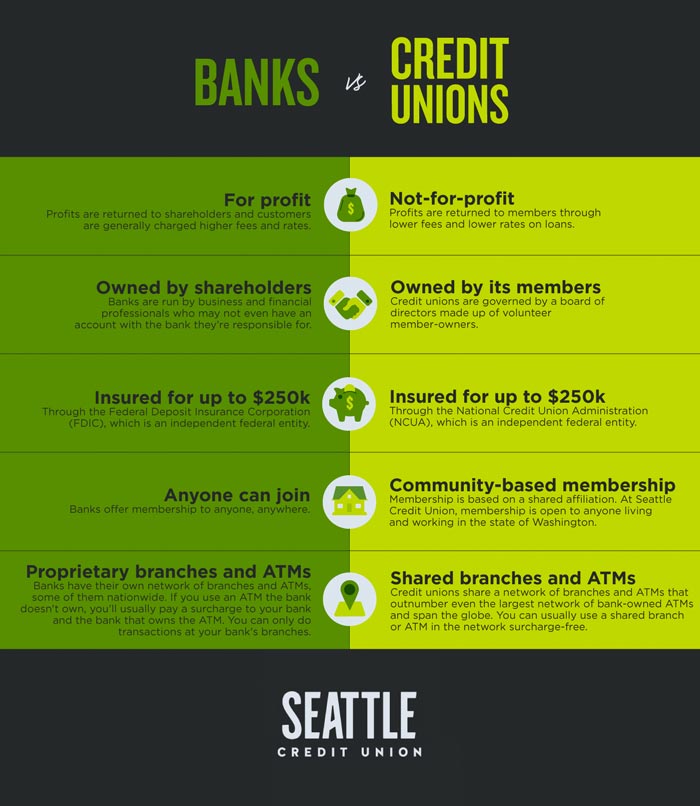Credit Union Cheyenne: Extraordinary Participant Solutions and Financial Products
Credit Union Cheyenne: Extraordinary Participant Solutions and Financial Products
Blog Article
Opening the Advantages of Lending Institution: Your Guide
In the realm of banks, credit rating unions stand as a distinctive and typically underexplored option for those looking for a much more customized technique to banking. As we explore the intricacies of lending institution, a globe of advantages and opportunities unravels, providing a look into a monetary landscape where area worths and member-focused solutions take center stage. From their simple beginnings to their modern-day influence, recognizing the significance of cooperative credit union might possibly reshape the means you see and manage your funds.

History of Cooperative Credit Union
Cooperative credit union have an abundant background rooted in the participating movement, dating back to the 19th century. The concept of credit report unions emerged as a feedback to the monetary needs of people who were underserved by conventional financial institutions. Friedrich Wilhelm Raiffeisen, a German mayor, is usually attributed with establishing the very first contemporary credit score union in the mid-1800s (Credit Union in Cheyenne Wyoming). Raiffeisen developed participating lending cultures to assist farmers and rural neighborhoods access budget-friendly credit report and leave the clutches of usurious lenders.
The idea of individuals collaborating to pool their sources and supply monetary assistance to every other spread swiftly across Europe and later on to The United States and Canada. In 1909, the first credit union in the United States was established in New Hampshire, noting the beginning of a new age in community-focused financial. Because after that, lending institution have actually remained to focus on the economic health of their members over revenue, personifying the cooperative concepts of self-help, self-responsibility, democracy, equity, equality, and uniformity.
Membership Qualification Criteria
Having actually established a structure rooted in participating concepts and community-focused banking, credit score unions maintain particular membership qualification standards to ensure positioning with their core worths and objectives. These criteria often focus on a common bond shared by potential members, which could include factors such as geographic location, employer, organizational affiliation, or subscription in a specific community or association. By needing members to meet certain qualification needs, cooperative credit union intend to promote a sense of belonging and shared objective amongst their participants, strengthening the cooperative nature of these economic organizations.
Along with typical bonds, some cooperative credit union might also expand subscription eligibility to family members of existing participants or people who stay in the exact same family. This inclusivity assists debt unions broaden their reach while still remaining true to their community-oriented ethos. By maintaining clear and clear subscription standards, credit rating unions can ensure that their participants are proactively taken part in sustaining the cooperative values and goals of the establishment.
Financial Products and Solutions
When considering the array of offerings readily available, credit basics report unions supply a varied variety of financial products and services customized to fulfill the unique needs of their members. Participants frequently profit from personalized customer solution, as credit report unions focus on constructing Home Page strong partnerships with those they serve.
Furthermore, cooperative credit union often provide financial education and counseling to help participants boost their financial proficiency and make notified choices. Several credit rating unions additionally join common branching networks, enabling participants to access their accounts at a selection of locations across the country. On the whole, the variety of monetary product or services provided by cooperative credit union highlights their commitment to satisfying the diverse demands of their participants while prioritizing their economic wellness.

Benefits Over Traditional Banks
Demonstrating an unique strategy to economic solutions, cooperative credit union supply several advantages over traditional banks. One key benefit is that cooperative credit union are typically member-owned, indicating that revenues are reinvested into the organization to offer far better prices and lower charges for participants. This cooperative structure typically causes extra personalized customer care, as lending institution focus on member fulfillment over making best use of profits. In addition, cooperative credit union are known for their affordable rate of interest on interest-bearing accounts, car loans, and credit history cards. This can cause higher returns for participants that conserve or borrow cash through the credit score union contrasted to standard banks.
In addition, cooperative credit union have a tendency to have a solid concentrate on economic education and learning and area support. They usually offer workshops and resources to assist members enhance their economic proficiency and make audio finance choices (Credit Union Cheyenne). By cultivating a sense of area and shared goals, lending institution can produce a more inclusive and supportive financial setting for their participants
Community Involvement and Social Impact

In addition, cooperative credit union frequently partner with local organizations and charities to support numerous social causes such as economical real estate, education and learning, and health care. By working read the article together with these entities, cooperative credit union can intensify their social influence and address crucial problems influencing their neighborhoods. This collective method not just advantages those in need but also reinforces the social textile of the area by cultivating a feeling of unity and assistance amongst its participants. Basically, cooperative credit union work as stimulants for favorable adjustment, driving community development and social development through their energetic involvement and impactful efforts.
Verdict
In conclusion, lending institution have an abundant history rooted in neighborhood and cooperation, providing a diverse series of monetary product or services with affordable rates and personalized customer care. They focus on the monetary wellness of their members over revenue, fostering a sense of belonging and offering financial education and learning. By actively participating in social influence initiatives, credit unions create a supportive and comprehensive financial environment that makes a positive distinction in both private lives and areas.
Friedrich Wilhelm Raiffeisen, a German mayor, is commonly attributed with starting the very first modern-day credit report union in the mid-1800s - Credit Union in Cheyenne Wyoming. By calling for members to fulfill certain eligibility demands, credit history unions aim to cultivate a feeling of belonging and shared objective amongst their members, enhancing the participating nature of these financial organizations
In addition, credit rating unions often offer economic education and learning and counseling to help members boost their financial literacy and make informed choices. Overall, the range of monetary products and services provided by credit score unions underscores their commitment to meeting the diverse needs of their members while prioritizing their monetary health.
Additionally, credit unions are known for their competitive passion prices on savings accounts, fundings, and debt cards.
Report this page